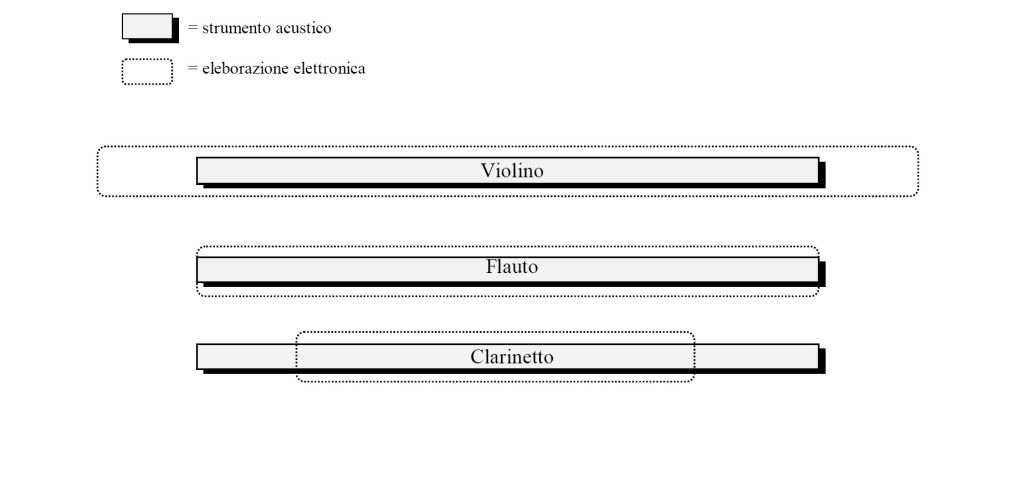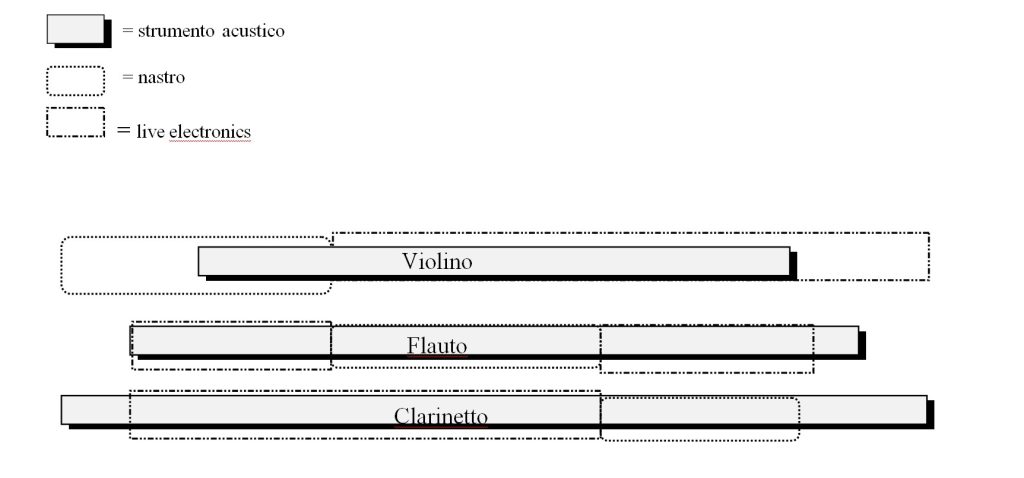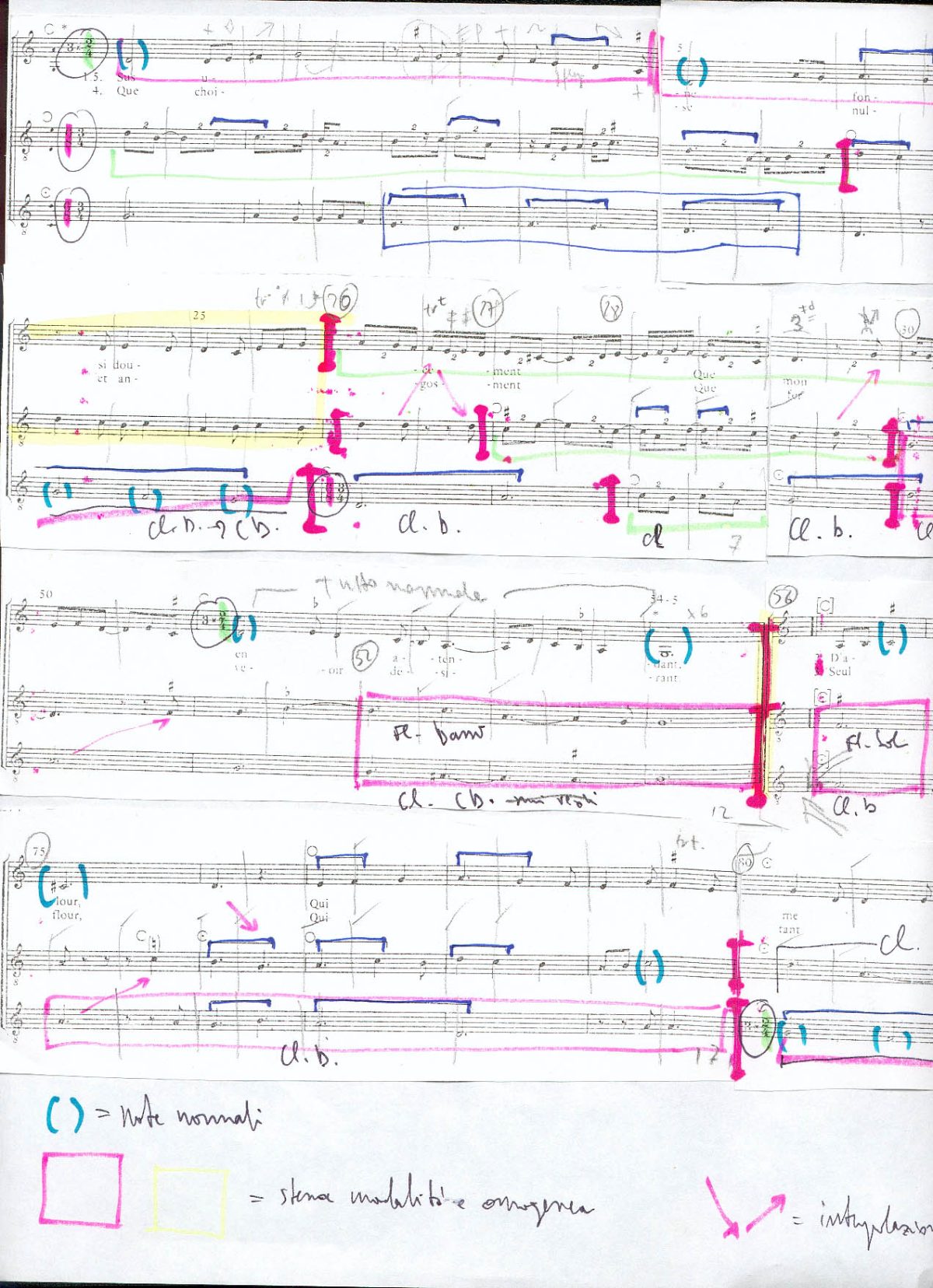(1997) commissioned by Centre de Recherches et de Formation Musicales de Wallonie in Liège
I Felix Regula clarinets (and bass or double-bass clarinet ad libitum) and tape [11’ 30”]
Premiered at Liége University, July 1997
Clarinets: Jean-Pierre Peuvion
Sound projection: Roberto Doati
II Felix Regula flutes (C and G) and tape [11’30”]
Premiered at Festival “images sonores”, Ancienne Eglise Saint André, Liège, 1998
Flutes: Catherine Binard
Sound projection: Jean-Marc Sullon
III Felix Regula violin and tape [13’ 30”]
Premiered at Festival “images sonores”, Ancienne Eglise Saint André, Liège, 1999
Violin: Izumi Okubo
Sound projection: Jean-Marc Sullon
V Felix Regula violin (ossia viola), flute, clarinet, 8 tracks tape and live electronics [15’30”]
Premiered at Festival Ars Musica, Bruxelles, March 2001
Viola: Miriam Götting
Flutes: Sascha Friedl
Clarinets: Heinz Friedl
Sound projection: Roberto Doati, Jean-Marc Sullon
Felix Regula is a work commissioned by and realized at the Centre de Recherches et Formation Musicales de Wallonie in Liège. When I received the invitation to realize a new piece with instruments and electronics it has been natural for me, living in Padova, to think to Johannes Ciconia (1340-1411). Not only because the great composer and theorician from Liège lived his last years in Padova, but also for the deep interaction between science and music there is in his life and work. As a composer working with computer since long time, I developed a musical thought shaped on this new technology. As technology I do not simply mean here the machine. I am referring to an ensemble of new scientific procedures to investigate and transform the nature.
The ‘nature’ to be transformed inFelix Regula is avirelaiby Ciconia (Sus une fontayne) which represents for me an archetype of the interest many composers had and still have on mirror games. So in the five different versions of the piece I realized(I:clarinet and tape, II: flute and tape, III: violin and tape, IV: tape solo, V: violin, flute, clarinet, tape and live electronics) I broke and rebuilt the form of the Ciconia virelai with musical istruments mirroring not only each other, as in the music of the past, but also in my preferred mirror: the computer technology.
The computer transformations of the instrumental sounds are therefore conceived as a sort of double of each instrument, but in each version differently disposed in time according the esprit de géométrie peculiar of Ciconia’s work. The instruments act also as acoustical “transformer”, as the original pitches of the Ciconia’song are changed as concern the modalities of their emission using instrumental contemporary techniques (slap, tongue ram, multiphonics, etc.).
In I Felix Regula all the sounds produced by the instrument are transformed and simmetrically distributed time compressed around the centre of the clarinet part. So the first measures of the live clarinet are heard electronically transformed only after 40 seconds, and the last electronics sounds are presented before their acoustical source.
In II Felix Regula the treatments of all the flute sounds are “played” simultaneously with the flute part, a kind of non-real time live electronics.
In III Felix Regula all the sounds produced by the instrument are transformed and simmetrically distributed time stretched around the centre of the violin part. So the first measures of the violin are heard electronically transformed 50 seconds before the live instrument, and the last electronics sounds are presented 50 seconds after their acoustical source.
IV Felix Regula is a 8 tracks version of the piece: track 1 (violin recording), track 2 (flute recording), track 3 (clarinet recording), tracks 4-5 (electronics from violon), tracks 6-7 (electronics from flute), track 8 (electronics from clarinet). The performance of the work is totally free as concern dynamics of the different tracks.
The temporal relation between instruments and electronics could be represented as follows:

V Felix Regula is a version for violin (viola), flutes, clarinets, 8 tracks tape and live electronics, where the relation between instruments and electronics could be represented as follows:


